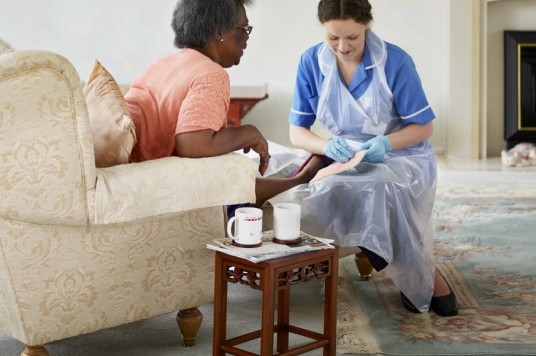Recovery at Home – giving people what they want
St George’s has recently launched a new Recovery at Home service (RaH) which provides patients with the same level of excellent care they would receive at St George’s but in the comfort of their own homes. Not only is this something patients have been requesting but there is also evidence that they recover more quickly. This new service does just this and helps the hospital too as it frees up bed space to allow us to treat more acute patients.
RaH patients still remain under the care of their consultant and get pharmacy and all other services in exactly the same way as if they were in hospital. It is only when the consultant considers that the person has recovered sufficiently in line with their treatment plan that the patient is placed back in the care of their GP.
The service, which was launched in January 2016, has so far supported over 50 patients and saved over 500 acute hospital bed nights. It is early days for the service but we have a planned expansion which continues until June 2016. The team consists of specially trained nurses, physiotherapists and healthcare support workers and, in the future, will also include an occupational therapist.
As part of the scheme our staff visit patients up to 3 times a day at home, 7 days a week between 07:00-22:00. Should they need help outside of these hours, patients and staff can contact a 24/7 support line called the Care Bureau, a service run and staffed by nurses. Dorothy Brown, a patient who was transferred to the service in February, recommends the service saying: “The Recovery at Home service has been brilliant and the staff are really friendly.”
Chris Drinkall, Senior Clinical & Quality Manager for RaH said, “It is really pleasing to hear the initial feedback from patients who have benefited from the service having the final part of their acute treatment in the comfort of their own home. As the service evolves we will find not only a greater number of patients being able to be transferred home to have their treatment, but that the number and complexities of treatment interventions supported by the team with the overview of their consultant will grow”.


